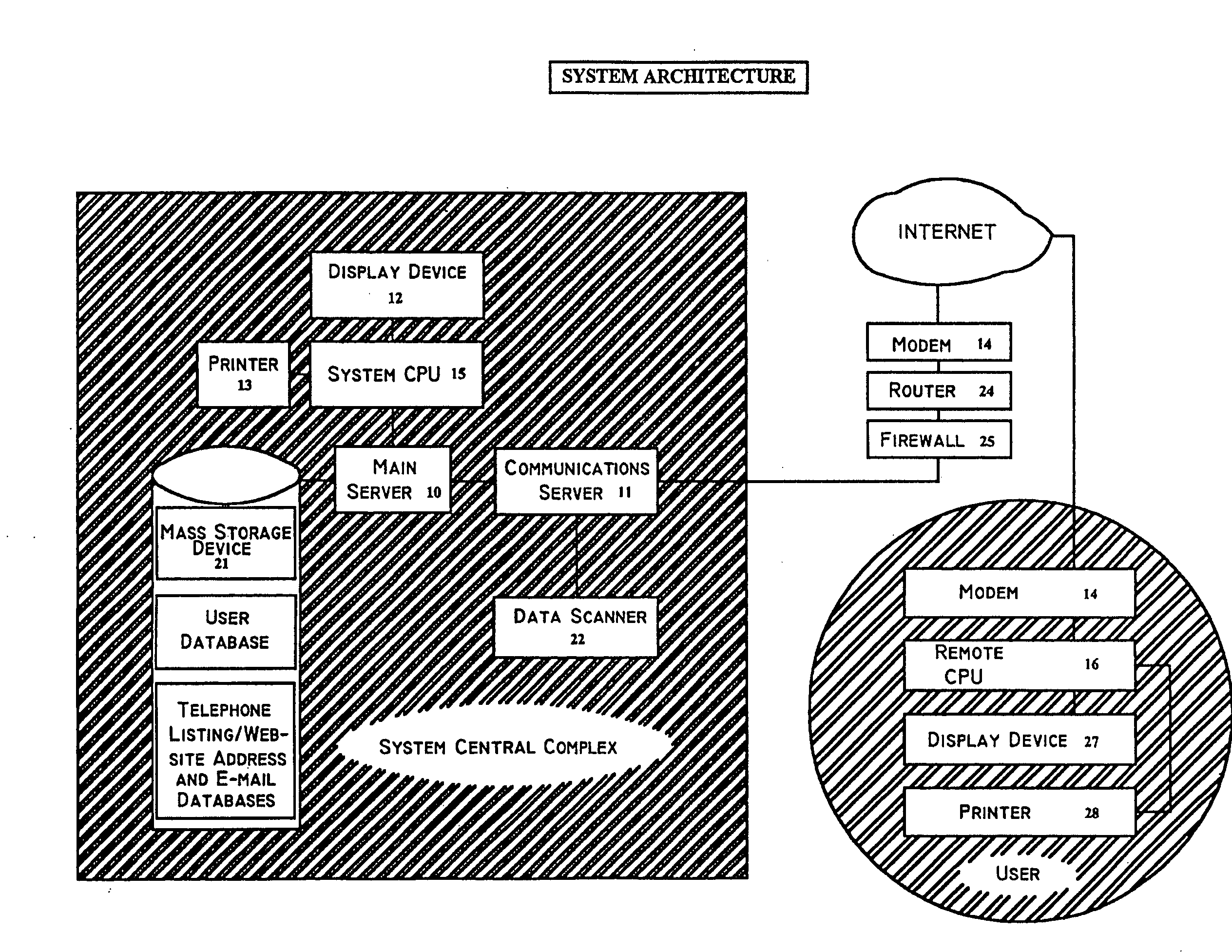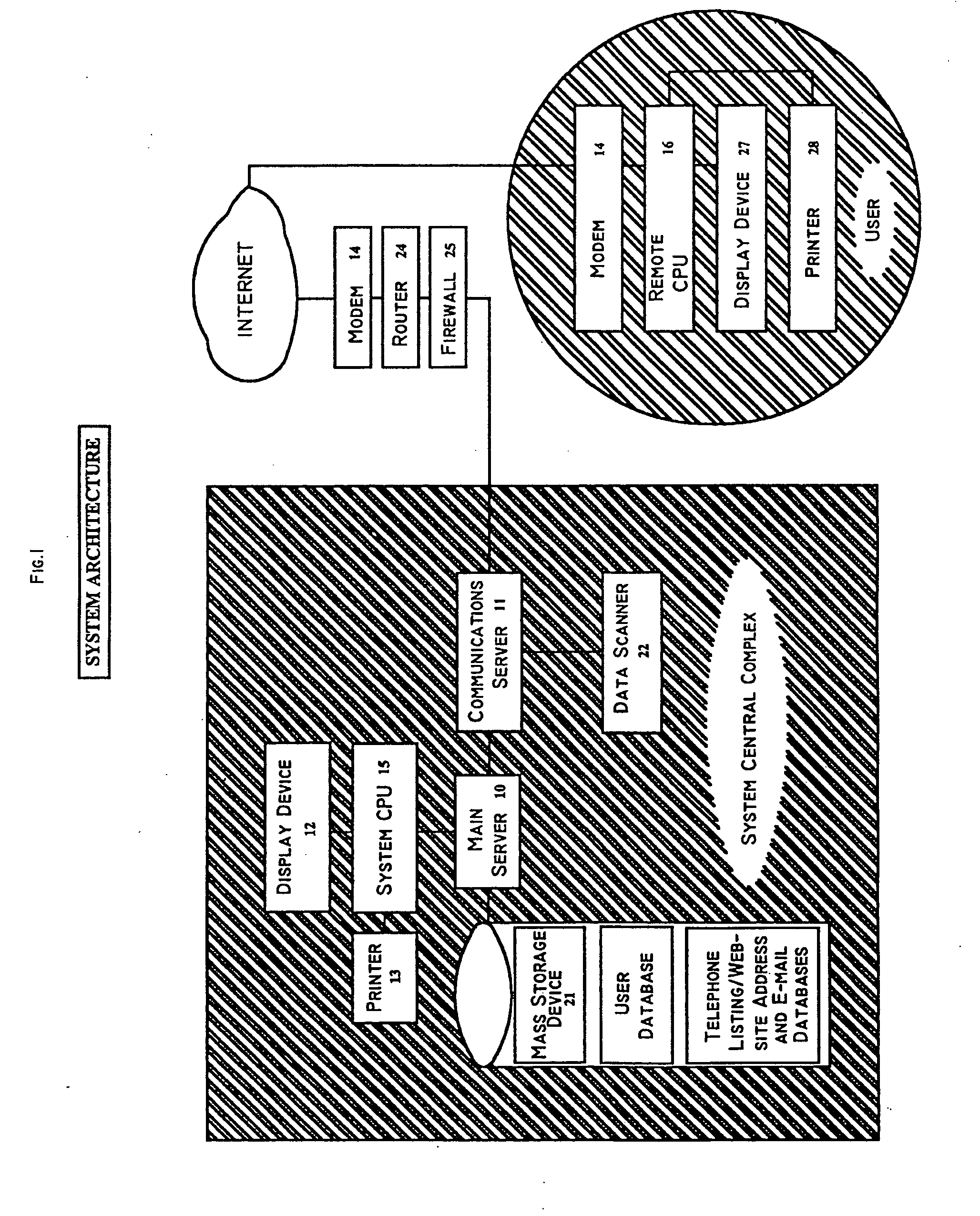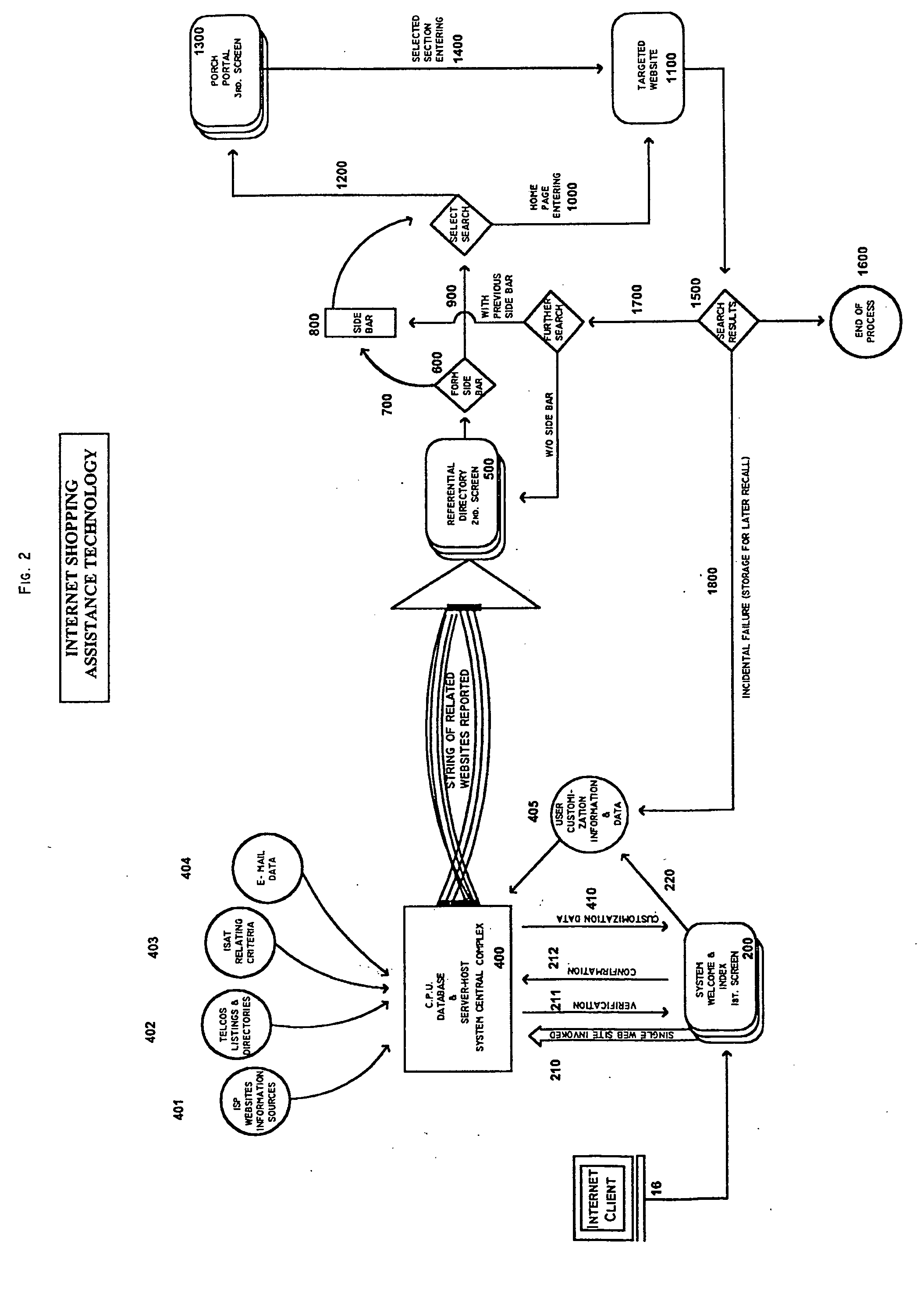Internet shopping assistance technology and e-mail place
a technology of internet shopping and email, applied in the field of streamlined system, can solve the problems of difficult for consumers to find, difficult to remember and enter correctly domain names, and increasing competition for business, and achieve the effects of convenient and rewarding use, direct traffic, and convenient use by any computer user
- Summary
- Abstract
- Description
- Claims
- Application Information
AI Technical Summary
Benefits of technology
Problems solved by technology
Method used
Image
Examples
Embodiment Construction
[0059]The present invention comprises a customizable computerized system for providing access to specified Internet websites and comparable alternative websites utilizing telephone numbers as search queries, comprising: means for receiving a system user search query for a specified Internet website in the form of either a domain name address / uniform resource locator or a telephone number corresponding to said website; means for processing said user search query to provide access to said specified Internet website in response to said query; and means for providing access to additional Internet websites that are comparable alternatives to said specified Internet website, said additional Internet websites being selected based on customizable criteria.
[0060]The present invention is also a method for providing access to specified Internet websites and comparable alternative websites utilizing telephone numbers as search queries, comprising the following steps: receiving a system user sea...
PUM
 Login to View More
Login to View More Abstract
Description
Claims
Application Information
 Login to View More
Login to View More - R&D
- Intellectual Property
- Life Sciences
- Materials
- Tech Scout
- Unparalleled Data Quality
- Higher Quality Content
- 60% Fewer Hallucinations
Browse by: Latest US Patents, China's latest patents, Technical Efficacy Thesaurus, Application Domain, Technology Topic, Popular Technical Reports.
© 2025 PatSnap. All rights reserved.Legal|Privacy policy|Modern Slavery Act Transparency Statement|Sitemap|About US| Contact US: help@patsnap.com



